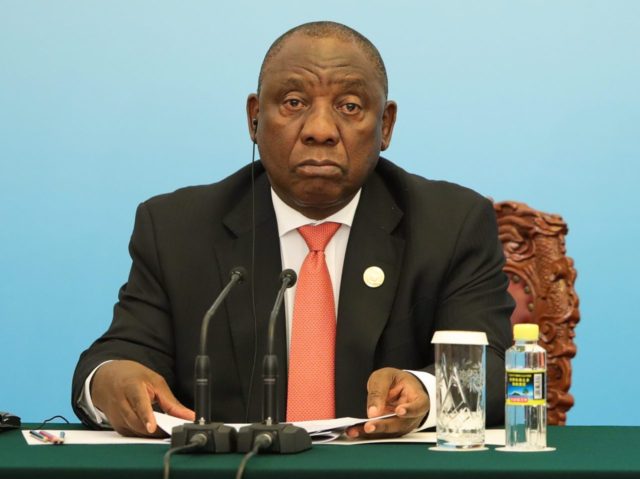South Africa slid into an official recession Tuesday, as second-quarter growth domestic product (GDP) figures showed a contraction of 0.7% — the second straight quarter of decline. First-quarter figures were revised down, from -2.2% to -2.6%.
The main culprit, according to South Africa’s Business Day, was a sharp contraction in the agricultural sector, which has been under political assault this year as the ruling African National Congress has pledged “expropriation without compensation.”
The Business Day described the “shocking drop in agriculture,” which single-handedly tipped the economy into recession:
Most analysts had expected a moderate increase in GDP.
…
But the most shocking number in the statistics is the precipitous 29.2% decline in agricultural production over the second quarter.
…
Statistics SA said: “The decrease was mainly because of a drop in the production of field crops and horticultural products”.
The agriculture “detracted a significant 0.8% from the headline outcome”, Investec said.
The recession is not quite “shocking” to opponents of the South African government’s land reform policy, which is ostensibly aimed at redressing racial inequalities in land ownership, but which critics have called a threat to property rights in general.
Though the policy only began in earnest last month, following a televised address by Cyril Ramaphosa, the newly-installed president had already declared that the government would pursue “expropriation without compensation” in February, during his “State of the Nation” address.
“Guided by the resolutions of the 54th National Conference of the governing party, this approach [to land redistribution] will include the expropriation of land without compensation,” Ramaphosa announced.
Farmers appear to have responded to those signals by taking fewer risks, preserving scarce capital rather than gambling it on a new crop in South Africa’s drought-prone climate when the value of their land, and security of their tenure, was at stake.
Last month, President Donald Trump caused controversy by tweeting that he had directed the Secretary of State to study the issues of land reform and farm murders in South Africa. The South African government accused him of “colonial” rhetoric.
Joel B. Pollak is Senior Editor-at-Large at Breitbart News. He is a winner of the 2018 Robert Novak Journalism Alumni Fellowship. He is also the co-author of How Trump Won: The Inside Story of a Revolution, which is available from Regnery. Follow him on Twitter at @joelpollak.

COMMENTS
Please let us know if you're having issues with commenting.